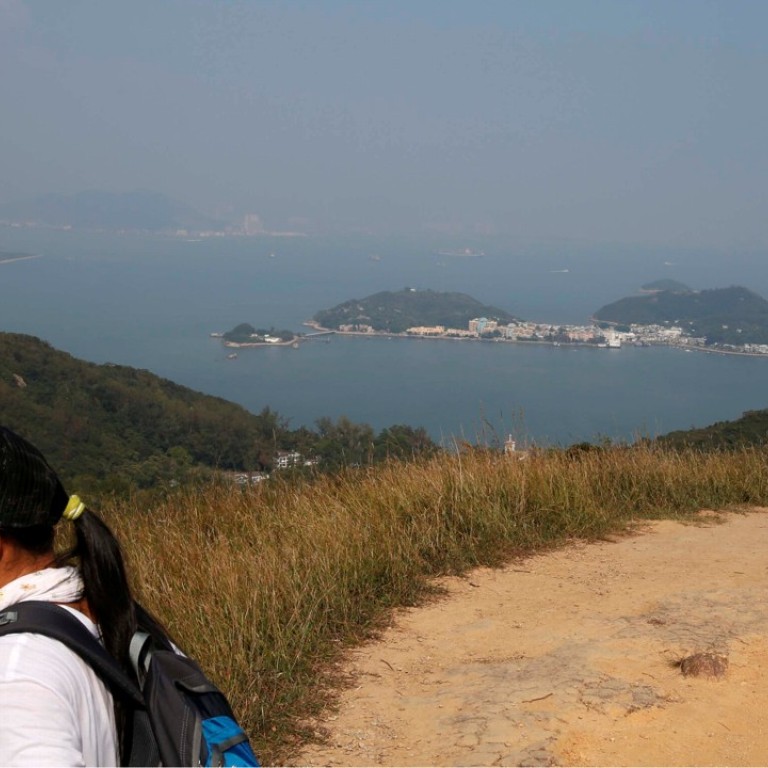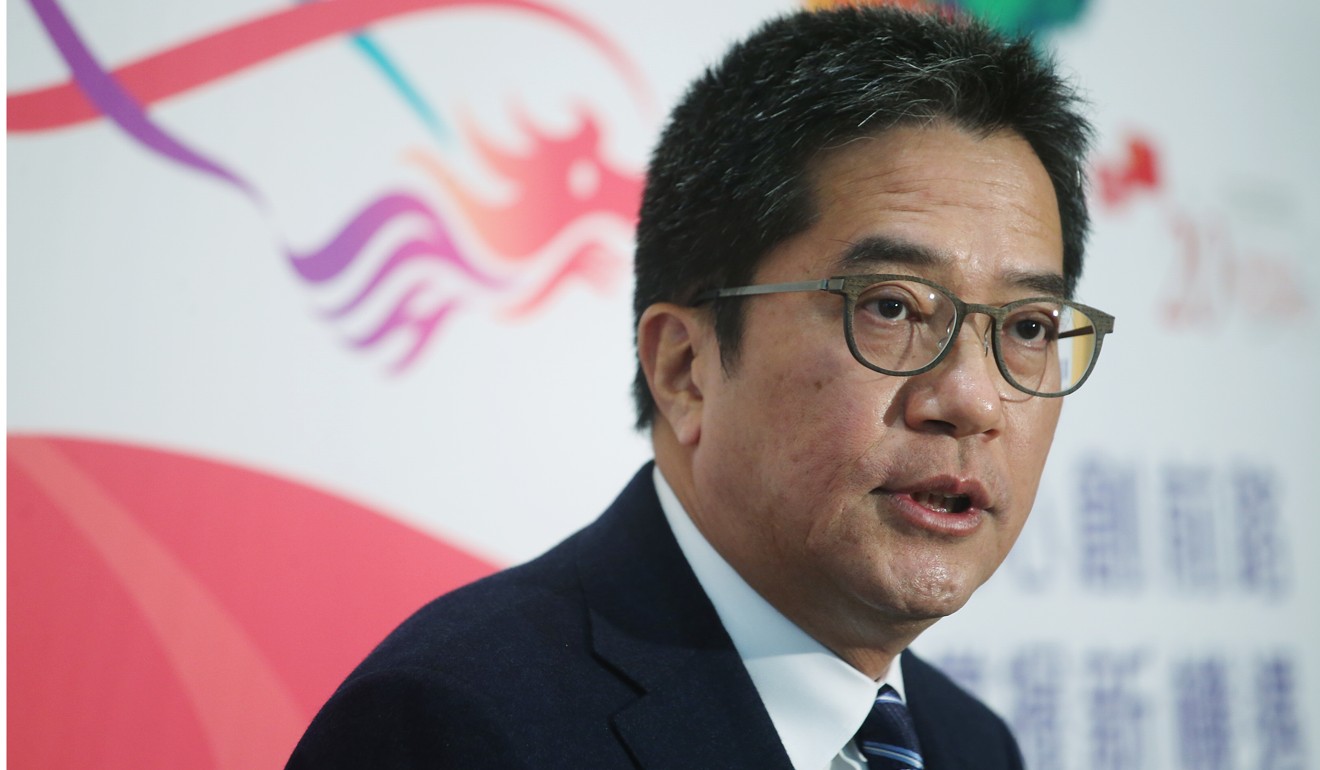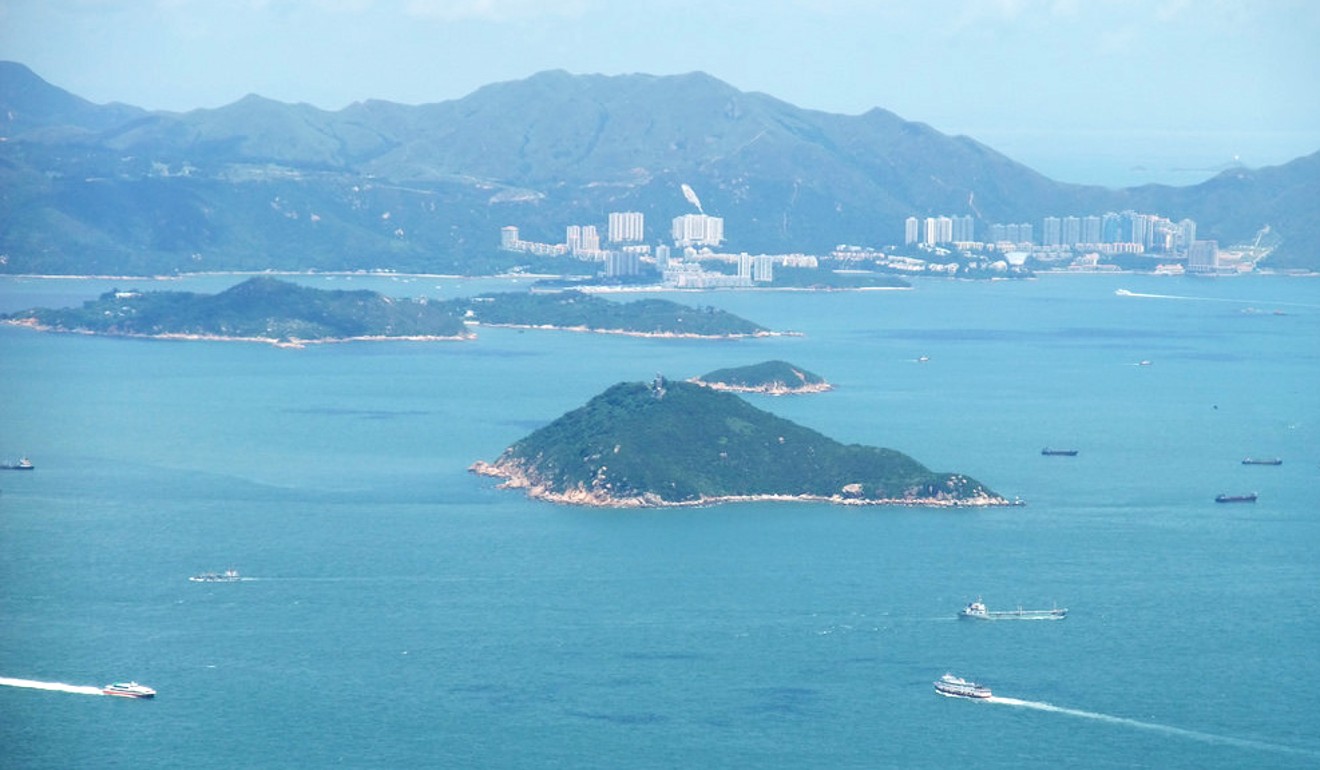
Land reclamation: funding for artificial island studies to be sought as Hong Kong officials press ahead with ‘Lantau Tomorrow Vision’
Government will look to secure financing from lawmakers in the first or second quarter of next year, development minister Michael Wong says
Hong Kong’s development minister has said officials will next year ask the legislature to fund studies into building artificial islands east of Lantau over the next 30 years.
Michael Wong Wai-lun said on Thursday the research would focus on the first stage of the plan – the reclamation of 1,000 hectares next to the small outlying island of Kau Yi Chau.
“But we will also put together basic data on the other 700 hectares, off Hei Ling Chau, to make full use of public money,” Wong said on a radio show.
The Development Bureau would look to secure the cash in the first or second quarter of 2019, he said.

The plan to push ahead with the ambitious project came after thousands turned out at a protest against the proposal on Sunday, voicing concerns about cost and environmental damage.
Hong Kong leader Carrie Lam Cheng Yuet-ngor last week announced in her annual policy address that the “Lantau Tomorrow Vision” could house up to 1.1 million people.
But she took flak for proposing the reclamation of 1,700 hectares when a previous plan had floated only 1,000.
‘Benefits outweigh costs’ of Hong Kong’s massive plan to reclaim land around Lantau Island
Last year, a task force was appointed by the government to study options for freeing up land in Hong Kong. It has been conducting a public consultation in which the reclamation of 1,000 hectares was one of 18 options. There was no mention of 1,700 hectares, and Lam was accused of riding roughshod over the panel before it issued its findings.

Wong on Thursday said the 1,700 figure was the result of prior studies by the bureau on water flow, marine channel safety and ecology.
The government did not have the “luxury” of waiting until next year’s policy address to announce the plan because the need for land in Hong Kong was severe, he said.
Informing the task force beforehand of Lam’s announcement would have been impractical because the policy address was strictly confidential, he added.
The body is expected to submit a final report to the government around Christmas on the 18 land options.
Hong Kong still needs land reclamation, Carrie Lam insists as thousands take to streets in protest against controversial artificial island plan
“Their [final] report will provide a very useful reference,” Wong said.
The minister also said it was understandable the public had concerns about the proposal, but he offered reassurances that sufficient public consultations would be carried out.
On cost, he said the reclamation alone would be priced at about HK$130 (US$17) to HK$150 (US$19) per square foot. That puts the cost of 1,000 hectares off Kau Yi Chau at between HK$130 billion and HK$150 billion. The figures exclude the infrastructure that would be needed for the islands.
A huge amount of marine sand would be required. Wong said it would be acquired in batches and the government would consider using local construction waste, which officials have spent billions over the past decade sending to mainland China.
Secretary for the Environment Wong Kam-sing said on another radio show that a “preservation first, development later” principle would guide the project.
Daryl Ng Win-kong, deputy chairman of property company Sino Group, expressed his support for “Lantau Tomorrow Vision”.
Ng said the plan was a farsighted vision as the city’s development in the last century had relied on reclamation such as the Central District, West Kowloon and the airport. The government has sufficient financial reserves and capacity to address technology problems and balance environmental issues, Ng said.
